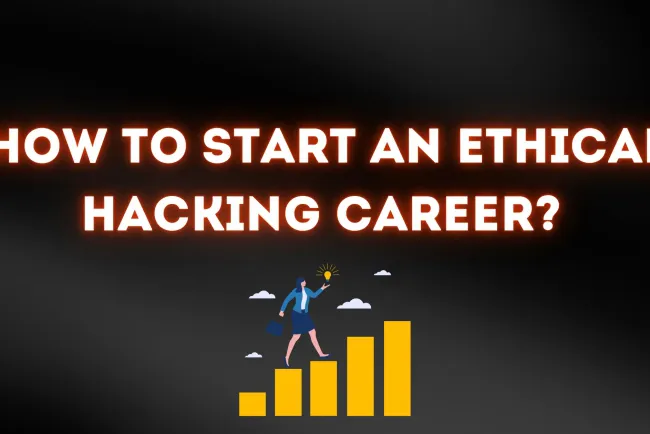Can a Digital Marketer Switch to Cybersecurity? A Complete Guide to Career Transition, Skills, and Job Opportunities
Transitioning from digital marketing to cybersecurity is entirely possible and can lead to a highly rewarding career with better job stability and salary growth. Many skills from digital marketing, such as data analytics, SEO, website optimization, and social media security, are transferable to cybersecurity roles. The transition process involves learning cybersecurity fundamentals, gaining hands-on experience with security tools, earning industry-recognized certifications (like CompTIA Security+ and CEH), and applying for entry-level cybersecurity roles such as Cybersecurity Analyst or Website Security Specialist. With dedicated learning and practical experience, digital marketers can successfully move into cybersecurity within 6 to 12 months. Organizations like WebAsha Technologies provide structured cybersecurity training programs with placement assistance, making the transition smoother. If you are a digital marketer looking for a career shift, now is the perfect time to start your

Table of Contents
- Introduction
- Why Would a Digital Marketer Consider Cybersecurity?
- Overlapping Skills Between Digital Marketing and Cybersecurity
- How to Transition from Digital Marketing to Cybersecurity?
- Can You Learn Cybersecurity Without a Technical Background?
- Final Thoughts
- FAQs
Introduction
With cyber threats growing rapidly, the demand for cybersecurity professionals has never been higher. Many professionals from different fields, including digital marketing, are considering a career switch to cybersecurity. But is it possible for a digital marketer to transition into cybersecurity? The answer is yes!
While digital marketing and cybersecurity seem like entirely different fields, there are overlapping skills that can help marketers bridge the gap. In this blog, we will explore how digital marketers can transition into cybersecurity, the skills required, step-by-step career guidance, and the best ways to kickstart a career in this high-demand field.
Why Would a Digital Marketer Consider Cybersecurity?
Many digital marketers are interested in switching to cybersecurity for various reasons, including:
- Job Stability: Cybersecurity offers high demand and job security, unlike marketing, which is often project-based.
- Higher Salaries: Cybersecurity professionals earn higher salaries compared to digital marketers.
- Challenging and Rewarding Work: Unlike marketing campaigns, cybersecurity involves problem-solving, ethical hacking, and digital defense, making it an exciting field.
- Growing Threats: With the rise in cybercrime, businesses need experts who can secure online assets, websites, and data.
Overlapping Skills Between Digital Marketing and Cybersecurity
Many people assume cybersecurity and digital marketing are unrelated, but digital marketers already possess some transferable skills:
| Digital Marketing Skills | Cybersecurity Relevance |
|---|---|
| SEO & Website Optimization | Understanding website vulnerabilities and securing them |
| Data Analytics | Analyzing cyber threats and security logs |
| Social Media Management | Protecting social media accounts from cyber threats |
| Email Marketing | Preventing phishing and email-based cyberattacks |
| Content Creation | Security awareness training and documentation |
| Google Ads & PPC | Recognizing and preventing ad fraud |
| WordPress & CMS | Securing websites from malware and attacks |
By leveraging these skills, a digital marketer can transition into cybersecurity faster than someone with no technical background.
How to Transition from Digital Marketing to Cybersecurity?
If you are a digital marketer looking to switch to cybersecurity, follow these steps:
1. Learn Cybersecurity Fundamentals
Start by understanding the basics of cybersecurity, including:
- Cyber threats (malware, phishing, ransomware, etc.)
- Network security (firewalls, VPNs, and IDS/IPS)
- Data protection and encryption
- Website security (SSL, HTTPS, and penetration testing)
Where to Learn?
- Free courses on Coursera, Udemy, and Cybrary
- WebAsha Technologies' Beginner Cybersecurity Training
2. Gain Hands-on Experience
- Set up a home lab with tools like Wireshark, Metasploit, and Nmap
- Learn ethical hacking using Kali Linux
- Practice Capture The Flag (CTF) challenges on platforms like TryHackMe
3. Earn Cybersecurity Certifications
Certifications help validate your cybersecurity knowledge. The best beginner-friendly certifications include:
- CompTIA Security+ (Best for entry-level cybersecurity jobs)
- Certified Ethical Hacker (CEH) (For ethical hacking and penetration testing)
- Certified Information Systems Security Professional (CISSP) (For security management roles)
- Google Cybersecurity Certificate (Great for beginners)
4. Transition into a Security-Related Role
Before applying for a full cybersecurity job, consider roles that bridge the gap between marketing and security, such as:
- Cybersecurity Awareness Specialist (Focuses on security training and awareness)
- Fraud Analyst (Detects and prevents online scams and fraudulent activities)
- Website Security Specialist (Protects websites from hacking and malware)
5. Apply for Entry-Level Cybersecurity Jobs
Once you have relevant knowledge, hands-on skills, and certifications, start applying for entry-level cybersecurity roles, such as:
- Cybersecurity Analyst
- SOC Analyst (Security Operations Center)
- Incident Response Analyst
- Threat Intelligence Analyst
Can You Learn Cybersecurity Without a Technical Background?
Yes! Many cybersecurity professionals come from non-technical backgrounds like finance, law, and marketing. If you are willing to learn and practice, you can build a successful career in cybersecurity.
- Start with online cybersecurity courses
- Practice in cybersecurity labs
- Earn industry-recognized certifications
- Gain experience through internships or projects
Final Thoughts
Switching from digital marketing to cybersecurity is possible with the right learning path, certifications, and hands-on experience. Your existing skills in analytics, social media, and content creation will help you understand cybersecurity threats in digital spaces.
If you are ready to start your cybersecurity journey, WebAsha Technologies offers industry-leading cybersecurity courses and placement assistance to help you transition smoothly into this exciting field.












![Top 10 Ethical Hackers in the World [2025]](https://www.webasha.com/blog/uploads/images/202408/image_100x75_66c2f983c207b.webp)

![[2025] Top 100+ VAPT Interview Questions and Answers](https://www.webasha.com/blog/uploads/images/image_100x75_6512b1e4b64f7.jpg)









